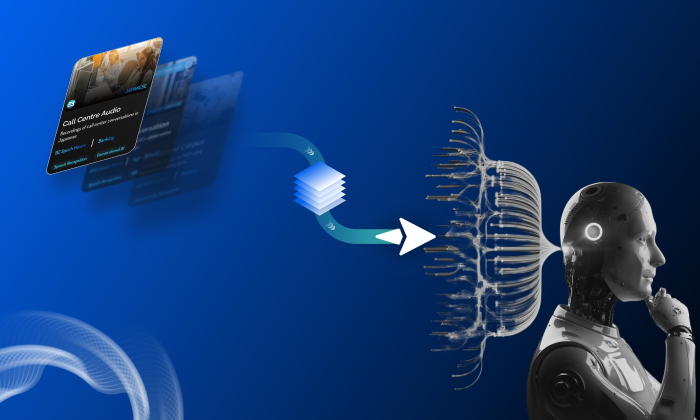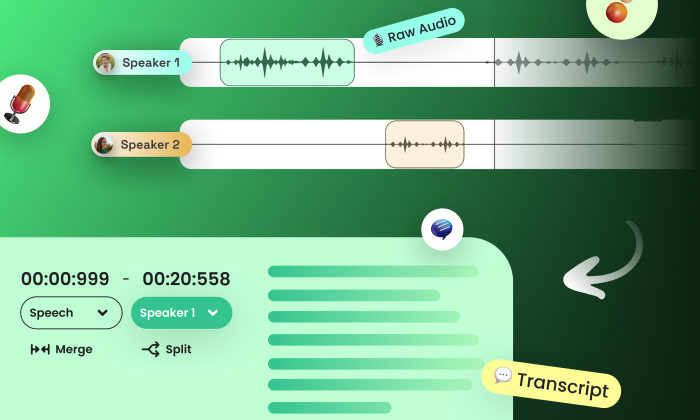Are there any legal restrictions on using voice cloning datasets?
Voice Cloning
Legal Compliance
Speech AI
Voice cloning technology has rapidly evolved, offering groundbreaking possibilities across industries. However, this innovation also brings a wave of legal considerations, particularly concerning the use of voice cloning datasets. For AI engineers, product managers, and innovation leaders at AI-focused companies, understanding these legalities is essential to safeguard against potential legal pitfalls.
Understanding Voice Cloning Datasets
Voice cloning datasets are collections of audio recordings from various speakers, used to develop synthetic voices that closely resemble real human speech. These datasets may include diverse audio types, such as scripted and conversational recordings. Given their sensitive nature, legal restrictions often emphasize respecting individual rights and clearly defining the data's intended use.
The Importance of Legal Restrictions
Legal restrictions are vital for protecting individual rights and ensuring ethical use of voice data. They help organizations avoid legal challenges and maintain trust with stakeholders. Adhering to these frameworks is not just a legal obligation but a marker of ethical responsibility, critical for the sustainable growth of AI technologies.
Securing Informed Consent from Voice Contributors
Securing informed, explicit consent from voice contributors is paramount. Contributors must be aware of how their voices will be used, including any commercial applications. This process involves:
- Explicit Consent Agreements: Detailing how the voice data will be used and specifying any commercial applications.
- Licensing Contracts: Outlining terms, duration, and compensation for the use of the voice data.
Without these elements, organizations risk infringing on privacy laws and ethical standards, which could lead to legal consequences.
Ownership and Personal Rights
A person's voice is often considered part of their personal rights, complicating ownership claims over recordings. To ensure lawful usage, companies must:
- Negotiate Rights with Contributors: Ensure contributors understand and grant permission for their voice data to be used.
- Avoid Infringement on Copyrighted Works: Ensure the voice data used does not infringe upon any existing intellectual property.
Compliance with Data Protection Regulations
Voice data is treated as personally identifiable information (PII) under regulations like the General Data Protection Regulation (GDPR). Compliance with data protection laws is critical and involves the following actions:
- Implement Robust Data Protection Protocols: Ensure data is securely stored and processed.
- Allow Data Access and Deletion: Give individuals the ability to access or delete their voice data upon request.
Common Legal Challenges in Voice Cloning
Organizations often face legal challenges due to oversight. Some of the common issues include:
- Failure to Renew Consent: As technology evolves, consent must be periodically renewed to ensure it remains valid.
- Lack of Clear Licensing Agreements: Failing to establish clear licensing agreements can lead to disputes.
- Ethical Concerns with Deepfakes: The potential misuse of voice cloning in creating deepfakes or misleading content can lead to legal actions and public backlash.
For example, consider a company rushing to deploy a voice synthesis system without securing comprehensive consent. This oversight could result in costly legal battles and reputational damage. By consulting legal experts and prioritizing ethical practices, companies can avoid these pitfalls and reinforce their market credibility.
FutureBeeAI's Commitment to Legal Compliance
At FutureBeeAI, we emphasize structured consent and rigorous compliance measures. Our datasets are ethically sourced, with contributors providing explicit consent for voice cloning applications. We also offer custom licensing models to ensure clear usage terms, supporting organizations in navigating this complex legal landscape.
Conclusion: Navigating the Legal Landscape of Voice Cloning
In conclusion, navigating the legal landscape of voice cloning requires a proactive, informed approach. FutureBeeAI stands ready to assist by providing ethically sourced data and robust compliance frameworks, empowering companies to innovate responsibly and sustainably.
What Else Do People Ask?
Related AI Articles
Browse Matching Datasets
Acquiring high-quality AI datasets has never been easier!!!
Get in touch with our AI data expert now!








